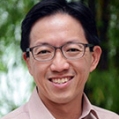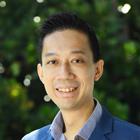KENNETH PAUL TAN, Professor, School of Communication, Hong Kong Baptist University
Kenneth Paul TAN is an academic all-rounder, (1) who has interdisciplinary expertise in Political Science, Public Management, Policy Studies, Sociology, Urban Studies, Cultural Studies, and Film and Media Studies, applied in a multi-dimensional, qualitative, interpretive, and critical analysis of Singapore as a developmental state and a global city; (2) who has won several prestigious teaching awards recognizing a scholarly and innovative approach to interdisciplinary, socially transformative, and highly interactive teaching and learning, combining the best of liberal arts and professional modes of education; and (3) who, as a seasoned academic leader with deep experience in institution-building, served in the senior leadership team that was able to transform a young public policy school into a world-leading institution within just a few years. Kenneth Paul TAN is a tenured Professor at Hong Kong Baptist University, which hired him under its Talent100 initiative in February 2021. He teaches and conducts interdisciplinary research within and across the Academy of Film, the Department of Journalism, and the Department of Government and International Studies. He is a member of the Global Communication and Power Research Cluster. He is also an Honorary Professor at the University of Hong Kong. Previously, he was a tenured Associate Professor at the National University of Singapore’s (NUS) Lee Kuan Yew School of Public Policy (LKY School). He was Vice Dean of the LKY School during the most rapid and critical years of its growth and served in its senior leadership team for almost a decade. Prior to that, he taught concurrently at the NUS Political Science Department (where he was Assistant Head) and the University Scholars Programme, the university's pioneering and cutting-edge liberal arts programme. He has received numerous teaching awards over the years, including NUS's most prestigious Outstanding Educator Award. He was elected Chair of the university's Teaching Academy.





